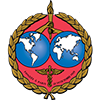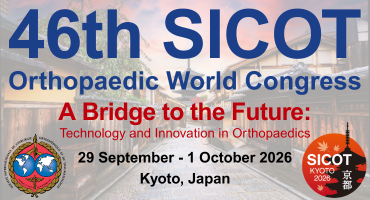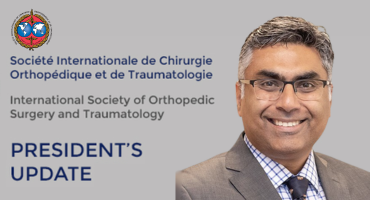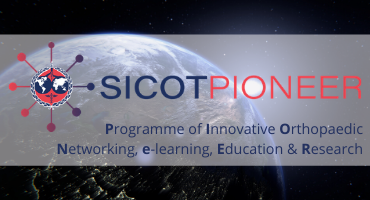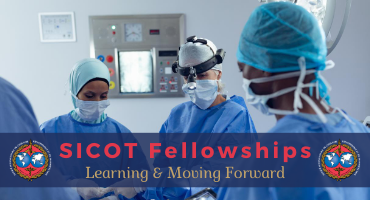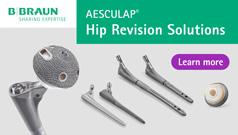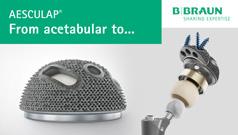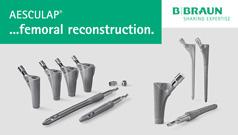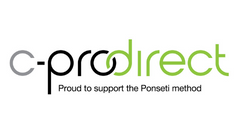The SICOT Foundation was formed in 1990 to manage funds donated for the purpose of helping SICOT achieve its research and educational goals. The Foundation has not only supported young surgeons from developing countries to train abroad and learn skills that can be applied in their own countries, but has also promoted global unity among these orthopedists. It has supported training in methods of research and in techniques for the better management of orthopaedic services to the public. The Foundation has promoted unity among orthopaedic surgeons from around the world.
Funding Opportunities
Primary funding comes from organizations and individuals wanting to contribute to its scientific and education activities. Donors are invited to make contributions to “The SICOT Foundation” either for its general use or in support of specific programs.
Examples of programs administered by the Foundation are the Lester Lowe, Korean, Marcela Uribe Zamudio (for women in orthopaedic training), and SICOT/SIROT Awards, which provide opportunities for young trainees in orthopaedics and traumatology to participate in international SICOT conferences. The Canadian Scholarship offers departments of orthopaedics and traumatology the opportunity to have an objective assessment of the quality of their patient care. The Assiut University/SICOT Training Fellowships provide young English-speaking surgeons from Africa training and experience at Assiut University in Egypt.
The SICOT Foundation is incorporated in the United States and is registered as a charitable trust in the State of New Hampshire. It is designated by the United States Internal Revenue Service as a 501(c)(3) private non-profit organization. Contributions to the Foundation may be sent to:
The SICOT Foundation, Inc., care of Mr Roberts office:
Hoefle, Phoenix, Gormley & Roberts, P.A.
127 Parrott Avenue
Portsmouth, New Hampshire 03801
United States
Acknowledgements of donations will include verification of the tax-free status of the Foundation.
The Foundation needs your help. You can be assured that your donations will be used directly and efficiently for improvement in the quality of orthopaedic care where it is most needed.
Please contact the Foundation for a full description of how you can contribute. Your contribution will be acknowledged on our SICOT Foundation donors’ list and in many other ways. You could have a scholarship in your name, depending on your desired level of support.
SICOT Foundation Projects
Lester Lowe SICOT Awards
Korean SICOT Awards
Marcela Uribe Zamudio Awards
SICOT / SIROT Awards
Assiut University / SICOT Training Fellowships
Orthopaedics Overseas (OO) / Health Volunteers Overseas (HVO)
Orthopaedic Research and Education Fund (OREF)
World Orthopaedic Concern (WOC)
Executive Committee
Matt Dobbs | President and CEO |
Founders
Leonardo Zamudio (Mexico) | Founder |
Contact
The SICOT Foundation, Inc., care of Mr Roberts office:
Hoefle, Phoenix, Gormley & Roberts, P.A.
127 Parrott Avenue
Portsmouth, New Hampshire 03801
United States
The following article is taken from the SICOT 75th Anniversary Book written by Charles Sorbie, with the kind assistance of Rocco Pitto.
Although it had been mentioned earlier than 1990, it was Dr Leonardo Zamudio of Mexico, former President of SICOT, who first made the necessary moves to establish a SICOT Foundation. He believed that it would assist in meeting the objectives of SICOT as it reached towards its fundamental goal of better scientific and clinical education in orthopaedic surgery. Dr Zamudio’s idea was eagerly accepted by the SICOT Officers and the Foundation was established in Durham, New Hampshire, USA. Dr Linda Sprague, Ph.D., was its first President. She was a Professor on staff at Dartmouth University and it was convenient for her to make, in Durham, New Hampshire, the complicated arrangements to obtain charitable status and create the Articles of Incorporation.
The group who incorporated the Foundation had its first official meeting on September 9, 1990 during the XVII World Congress of SICOT in Montreal. The “incorporators” were Jacques du Parc from France, Dean MacEwen from United States, Sir Dennis Paterson from Australia, Jacques Wagner from Belgium and Dr Sprague. They signed the articles of agreement to register the Foundation as a charitable trust, with the Attorney General of the State of New Hampshire. Application to the United States Department of Internal Revenue was made to achieve “recognition of exception under Section 501(C) of the Internal Revenue Code”. The decision to establish the Foundation in the United States was also based on the fact that it had the largest group of SICOT members and it was the predicted source of most donations. SICOT members resident in the United States would have simpler problems in giving to a charitable foundation. It was agreed that Jacques Wagner, Secretary General of SlCOT would serve as Chairman of the Board of Directors. The remaining Founders or Incorporators elected to the Board, were Maurice Müller from Switzerland, Charles Sorbie from Canada, Takao Yamamuro from Japan and Leonardo Zamudio.
The first or official inaugural meeting of the Board took place on the same day, September 9, 1990. After the initial get-together Dr Sprague wrote the Constitution and the By-Laws, with the help of a suitably qualified lawyer in New Hampshire, to ensure that they met State and Federal Regulations. An account was opened with $250 (US) in the Durham Bank.
The articles of agreement, the Constitution and By-Laws were finally agreed to in 1991 after modifications by Robert de Marneffe. Since then, there has been only one change in the By-Laws on a motion from Dr Zamudio to clarify the distribution of funds in the Foundation should it, for any reason, collapse.
In the first decade of the Foundation, there were virtually no free-funds available for operating expenses or for disbursements that were not already committed. Appeals for more funds were sent to SICOT members. On December 5, 1992, the International Council of SICOT at a meeting in Buenos Aires, agreed that 10% of the profit from congresses should be returned to the Local Organizing Committees with the understanding that the funds would be used for purposes of which SICOT would approve. One of these purposes contemplated was to have some of these funds donated to the Foundation for the establishment of fellowships and scholarships. For example, part of the funds from the 1990 Congress in Montreal were transferred to the Foundation to establish the Canadian Fellowship. More recently, it has been agreed that % of profits from congresses or conferences will go directly to the Foundation.
The Foundation has worked for many years without enough uncommitted funds to provide operating money to mount major fundraising initiatives. Nor has it been able to show, by having a large reserve created by its members, serious stature in the world community of foundations.
In 1996 when it seemed to have reached a point of inertia, Linda Sprague, its President, resigned her position to concentrate on other activities in which she was deeply involved.
At the Foundation meeting in Amsterdam on August 18, 1996, during the Congress, Maurice Müller offered to support Denise Duhaime as Administrative and Marketing Manager of the Foundation. His support was extended to two years. Mrs Duhaime, however, continued to work voluntarily for the Foundation from 1998 with full managing responsibilities. For the sake of convenience, when Mrs Duhaime took over management the address of the Foundation moved to the office of Sorelcomm in Montreal. She reorganized the financial relationship with the SICOT Treasurer in Brussels, reconciled the income tax requirements, the assets of the Foundation and simplified the banking system. With the help of Maurice Hinsenkamp, Thami Benzakour, Christiane Marriotte, and Beatrice Chaidron, improvements were made in the organization of fellowships, grants and scholarships, some of which are managed from the SICOT Headquarters in Brussels.
The Executive Committee of the Foundation has developed a strategy for fundraising, which has been presented to the Board. There are still limited funds for promotion at this time but progress has been made in general and a major advance in particular.
Maurice Müller was impressed with the organization of the Foundation and agreed to a plan outlined by the Executive through which the Maurice E. Müller Foundation could collaborate with the SICOT Foundation in the creation of an International Fellowship. This proposal resulted in a $600,000 (US) grant in escrow to provide interest combined with Foundation funds for an annual Fellowship of $40,000 (US). The negotiations for the terms of the Fellowship were completed at a conference between Dr Max Aebi, Director of the Müller Foundation, Dr James Weinstein, Professor of Orthopaedic Surgery and Clinical Evaluative Science at Dartmouth University, Dr Chadwick Smith, Dr Charles Sorbie and Mrs Duhaime. The format of the Fellowship was agreed to in March 2002. The Fellowship was advertised and there have been excellent applications from outstanding candidates.
The purpose of the International Fellowship is to make available funds for orthopaedic surgeons who have finished their specialist training and who are pursuing an academic career in an emerging/developing country. It is designed to give its recipient the tools and methodology to evaluate outcomes of orthopaedic procedures and other forms of treatment, which are important for the health of the public in their home countries. Any successful candidate must obtain the support of his/her university and relevant medical authorities to ensure a worthwhile and long term impact on health care from the Fellowship experience. The Fellowship is designed to last for one year and is jointly tutored by the Maurice E. Müller Institute for Evaluative Research in Orthopaedic Surgery at the University in Bern, Switzerland and the Centre for Evaluative Clinical Sciences at Dartmouth Medical School in New Hampshire, United States of America. Successful completion of the Fellowship will be acknowledged by a certificate from Dartmouth University. Applicants are expected to have a basic knowledge of statistics and epidemiology or prepare themselves appropriately prior to the commencement of the Fellowship. Guarantees must be given that the medical authorities or the government of the candidate’s own country will provide a suitable appointment when the Fellow returns to his/her home and that a Fellow will be provided with suitable facilities to continue to develop the knowledge and skills learned during tenure of the Fellowship. It is hoped that a small international society will be formed to link the Fellows. It should as it evolves, develop collaborative research and social contacts which would be beneficial to all future Fellows.
The Executive Committee of the SICOT Foundation has developed a strong relationship with the American Orthopaedic Research and Education Foundation (OREF) which has kindly agreed to manage the invested funds of the SICOT Foundation.
The Foundation has had significant success in providing travel grants for SICOT Associate Members in particular from countries which are not wealthy. Its funds have provided opportunities for travel to young surgeons in southern India for very worthwhile experiences in surgical skills at teaching centers relatively near their own home bases. It has meetings with World Orthopaedic Concern as its goals of improving, through education, the quality of orthopaedic surgery in developing countries, run in parallel with those of the Foundation.
